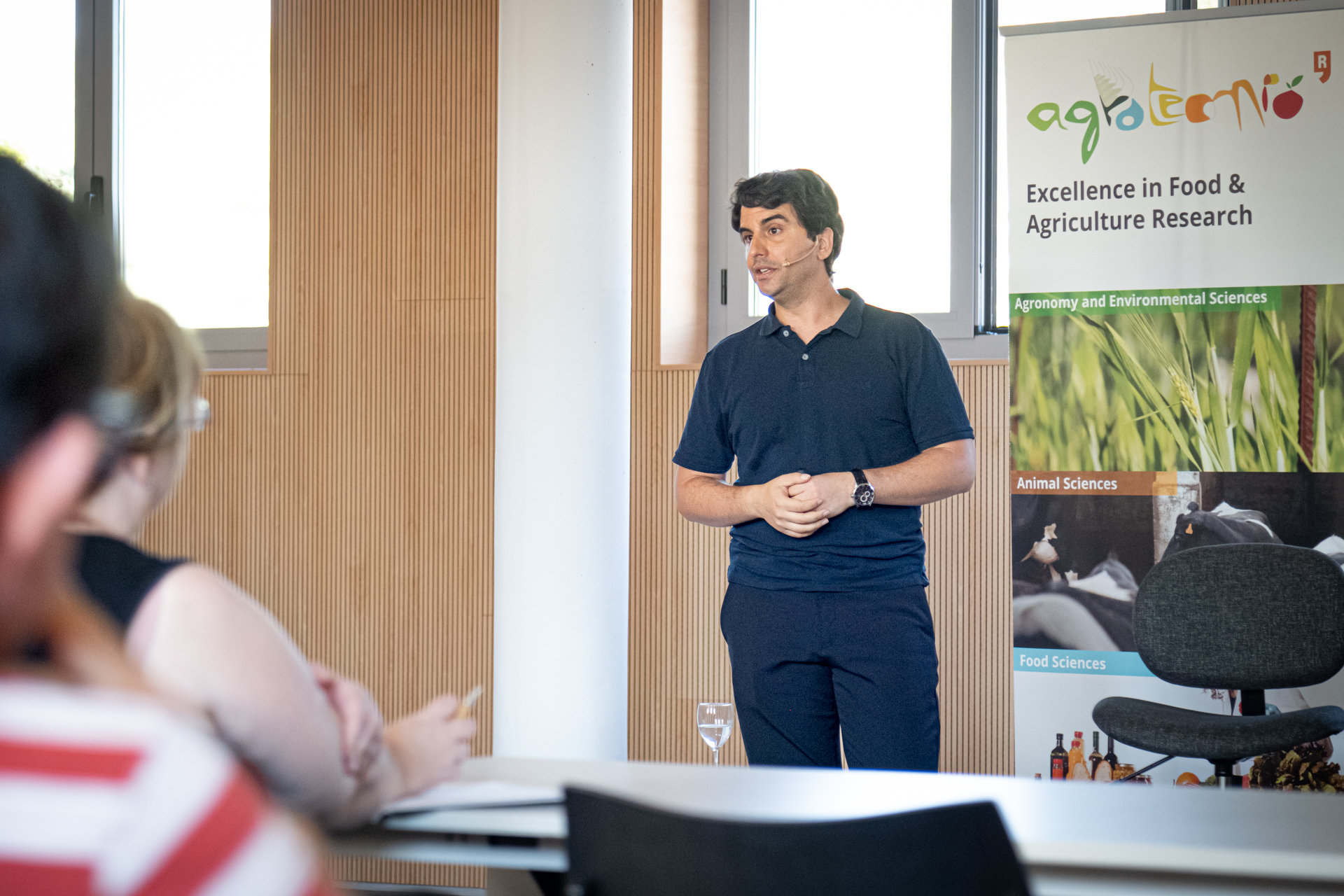Arable crop farms in the Ebro Valley are facing low yields due to high production costs and low cereal prices. To address this problem, research is being carried out on innovative production systems with grain legumes such as chickpeas, lentils and beans. On Thursday, 11 July, Agrotecnio and the Lleida Agrobiotech Park organised a Breakfast4inno session to discuss the proposals that have been worked on by the Agrotecnio-University of Lleida and Aigües del Segarra-Garrigues research groups.
The European Union is the world’s largest importer of vegetable protein. According to data from the European Commission, more than 17 million tonnes of protein crops, such as soya, are imported from Brazil, Argentina and the United States every year. There are various strategies, both at European and national level, to promote protein crops, but the production of pulses is very unstable due to the lack of rainfall, the high cost of seeds and the large investments needed to have specialised machinery for the different species of pulses.
Daniel Plaza-Bonilla, researcher at Agrotecnio and the UdL, leads various projects and lines of research focused on the design of sustainable crop systems that combine the production of cereals and pulses and that facilitate adaptation to climate change, yield and the overall improvement of the two crops. Speaking yesterday, Plaza-Bonilla explained that “legumes have an important role to play, but they should not be a substitute for other cropping systems. We have to try to find the value of legumes for human consumption and try to boost the food industries. In collaboration with Xavier Petit Tomàs, agronomist at Aigües del Segarra-Garrigues, they have developed various proposals such as the search for alternatives to crops that require a lot of water, such as maize.
Breakfast4inno will continue throughout 2024. The next session will take place on 12 September and will address biological pest control in urban green spaces. The full programme of the breakfasts is available here.
More information:

